31-10-22 | Max Ernst, Automatism and Frottage
I started looking for ways to interrogate, interact and experiment with the surface textures of the material from my family's domestic archive. Through researching the work of Max Ernst and the Automatism movement, I came across the term 'frottage', which on inspection seemed a formal word for the wax rubbings we would make as children of the tree trunks at our local park. I liked the idea of returning to a process steeped in childhood memory as a means of investigating the objects I encountered in my family collection. I made various rubbings of ornaments and noted down the story behind each while speaking with my parents and brother. I suppose I am particularly interested in surface, in both a visual and sonic context, and what it can tell us about an object. This idea links with my interest in the oral histories which surround the archive, as both are a means of connecting with and establishing the identity of the family. I’d like to take more rubbings and start to work with these in a collage form, or perhaps as a means of transferring surface textures from the archive onto new pieces of work, in clay or perhaps print.
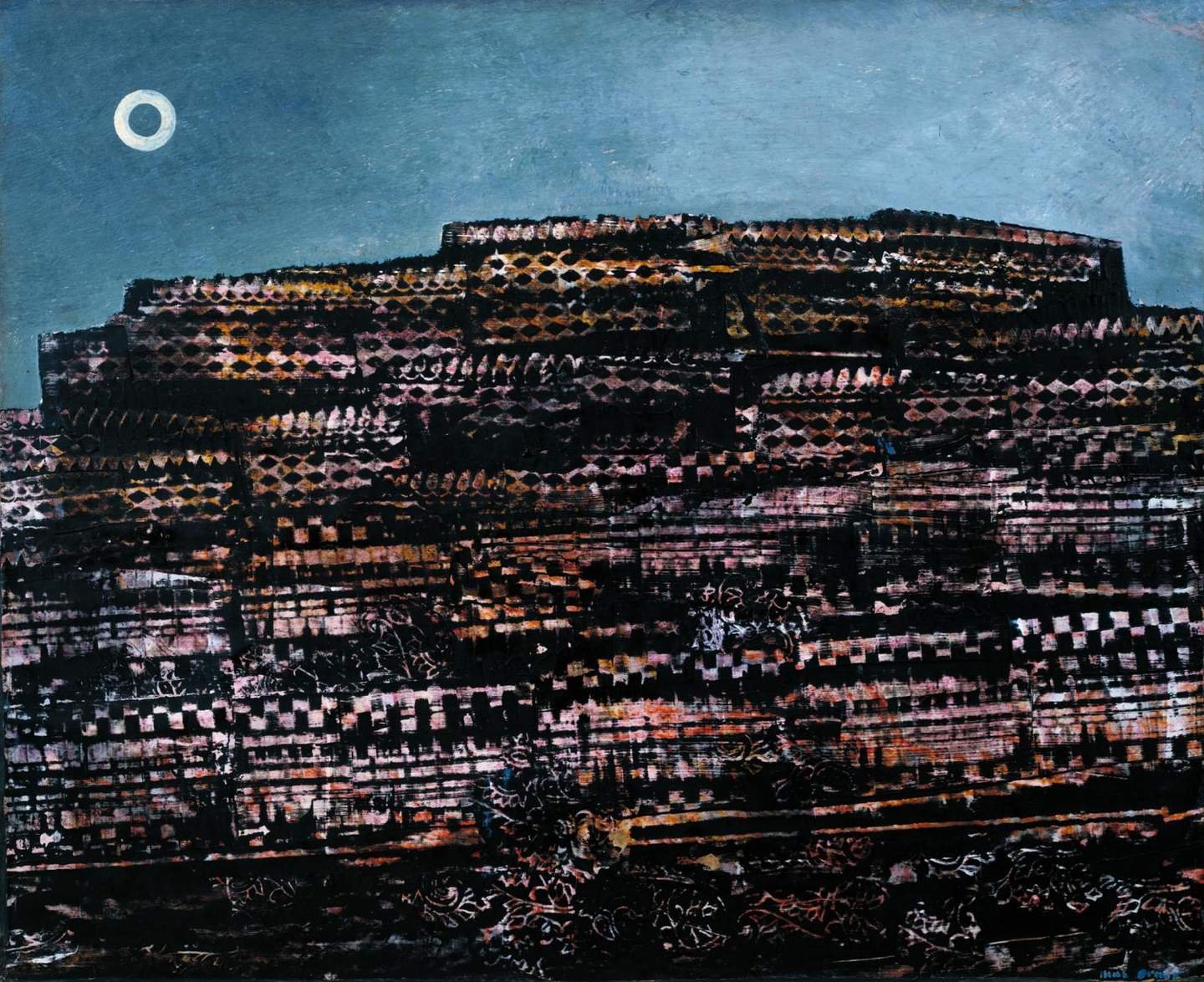
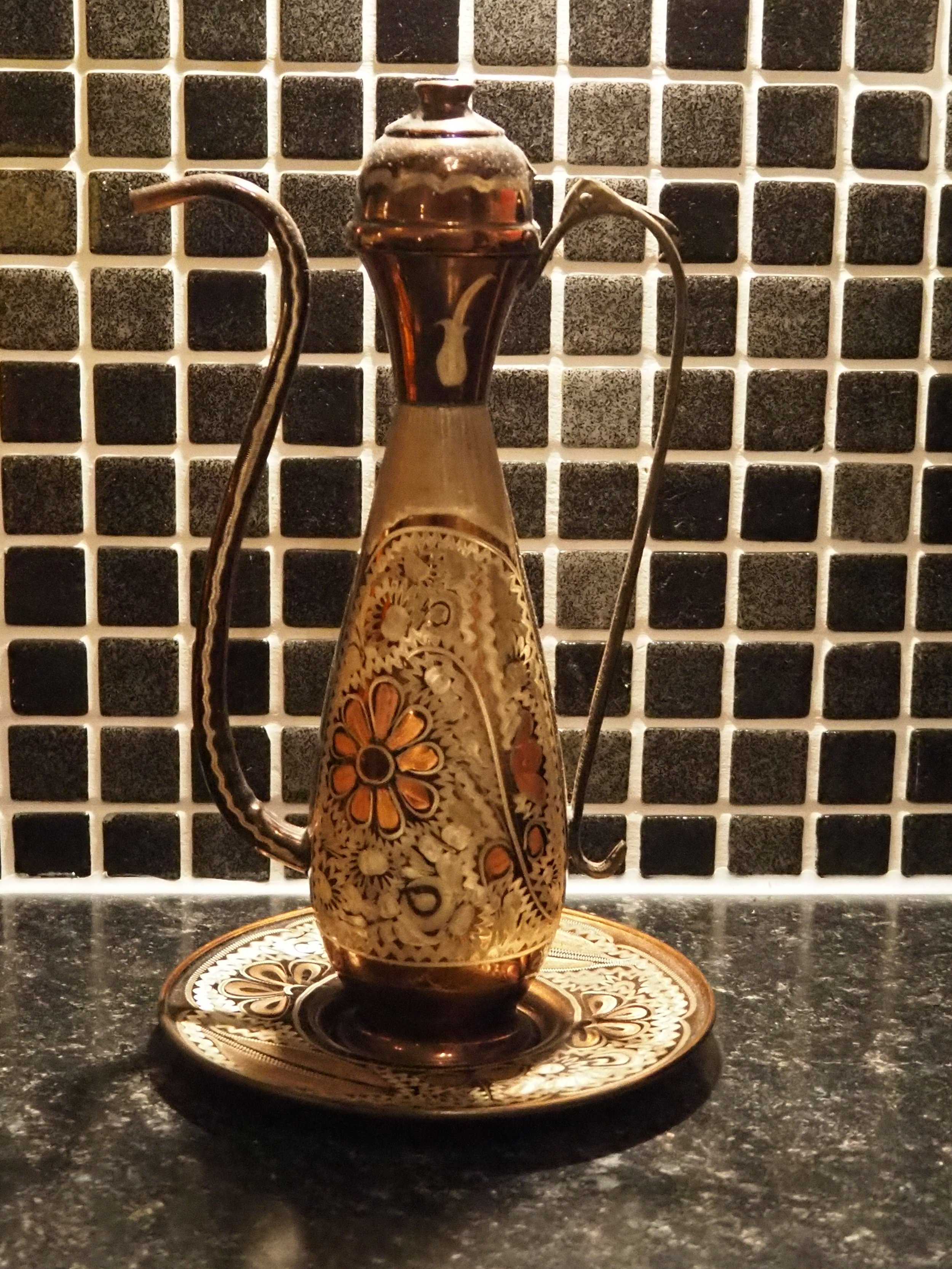
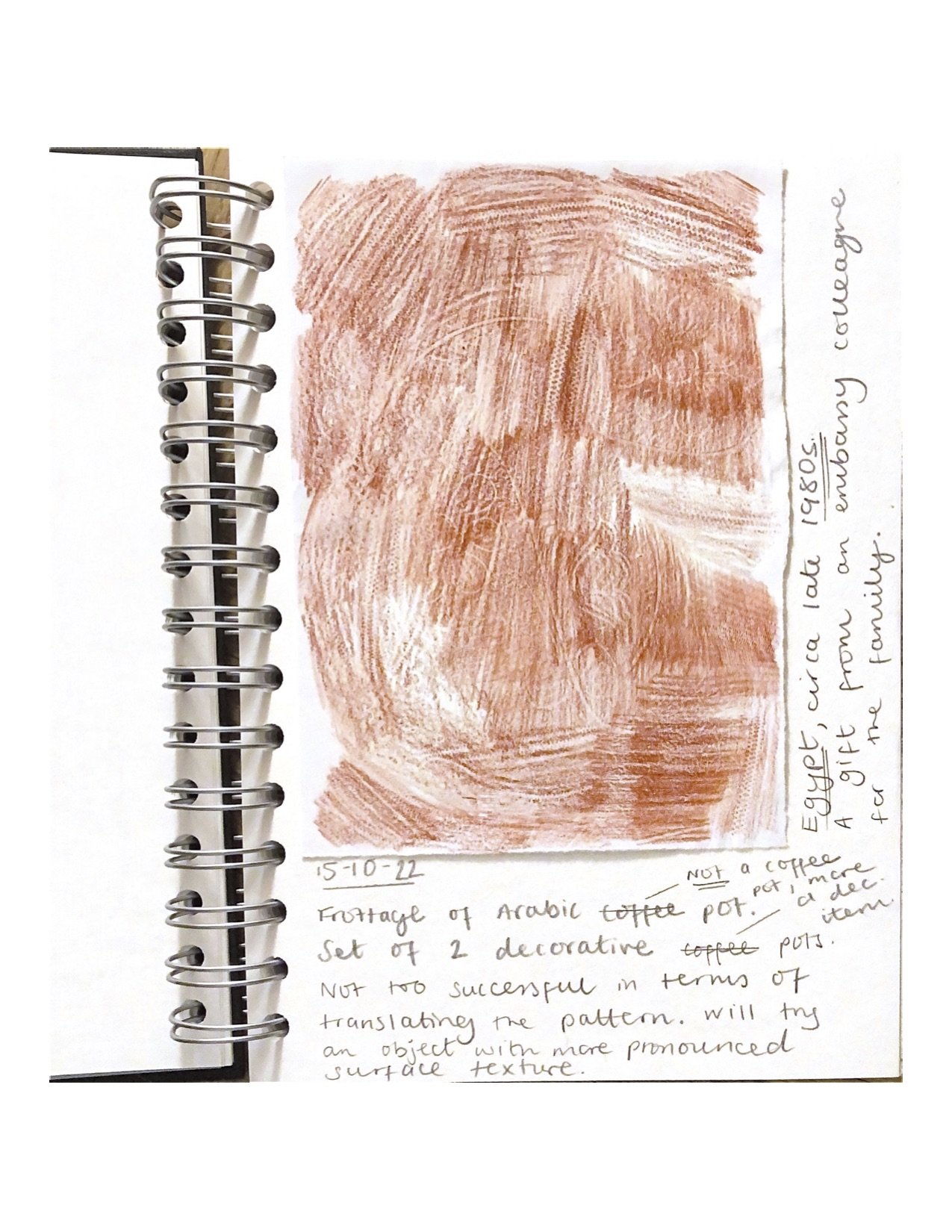
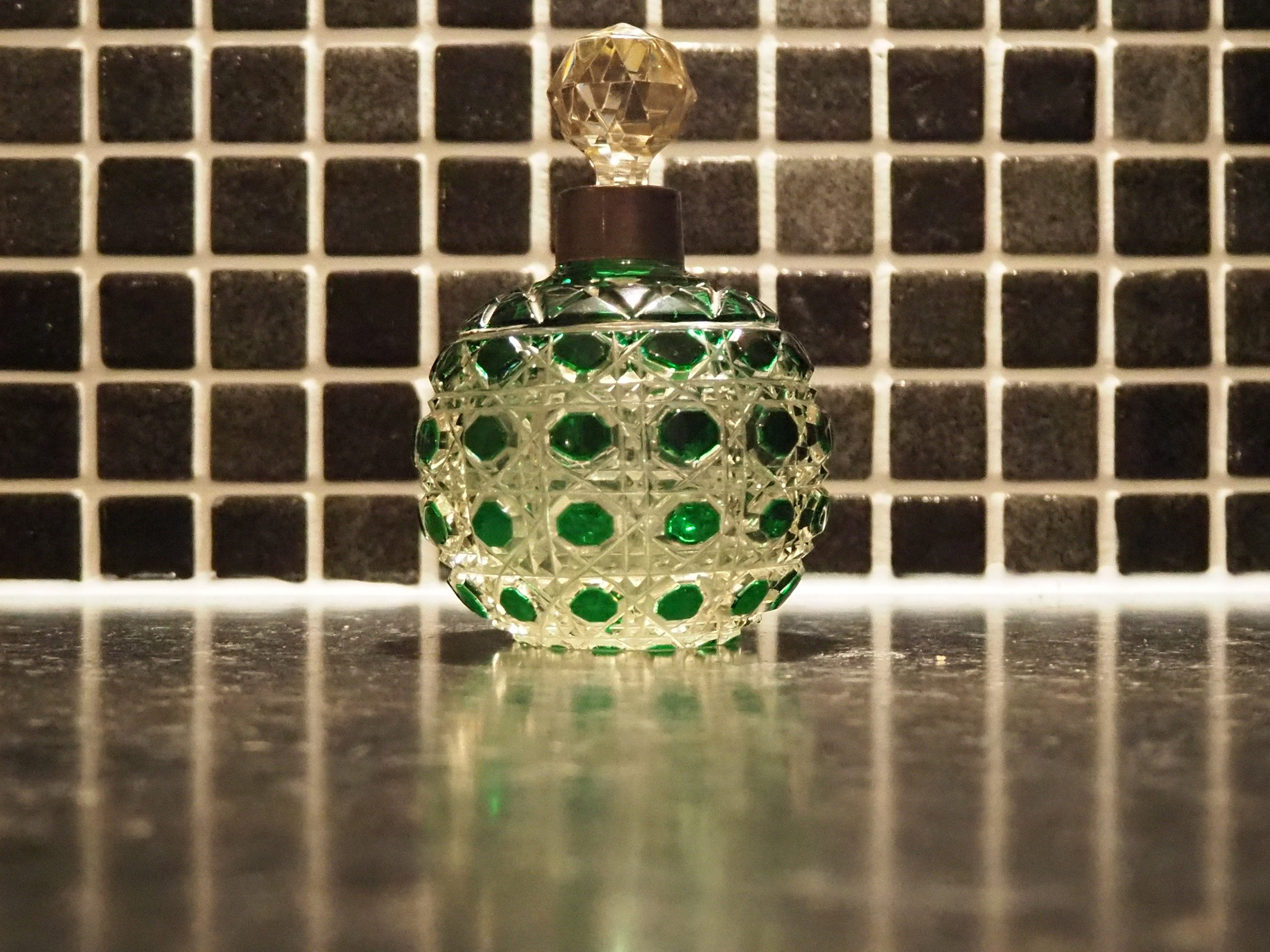
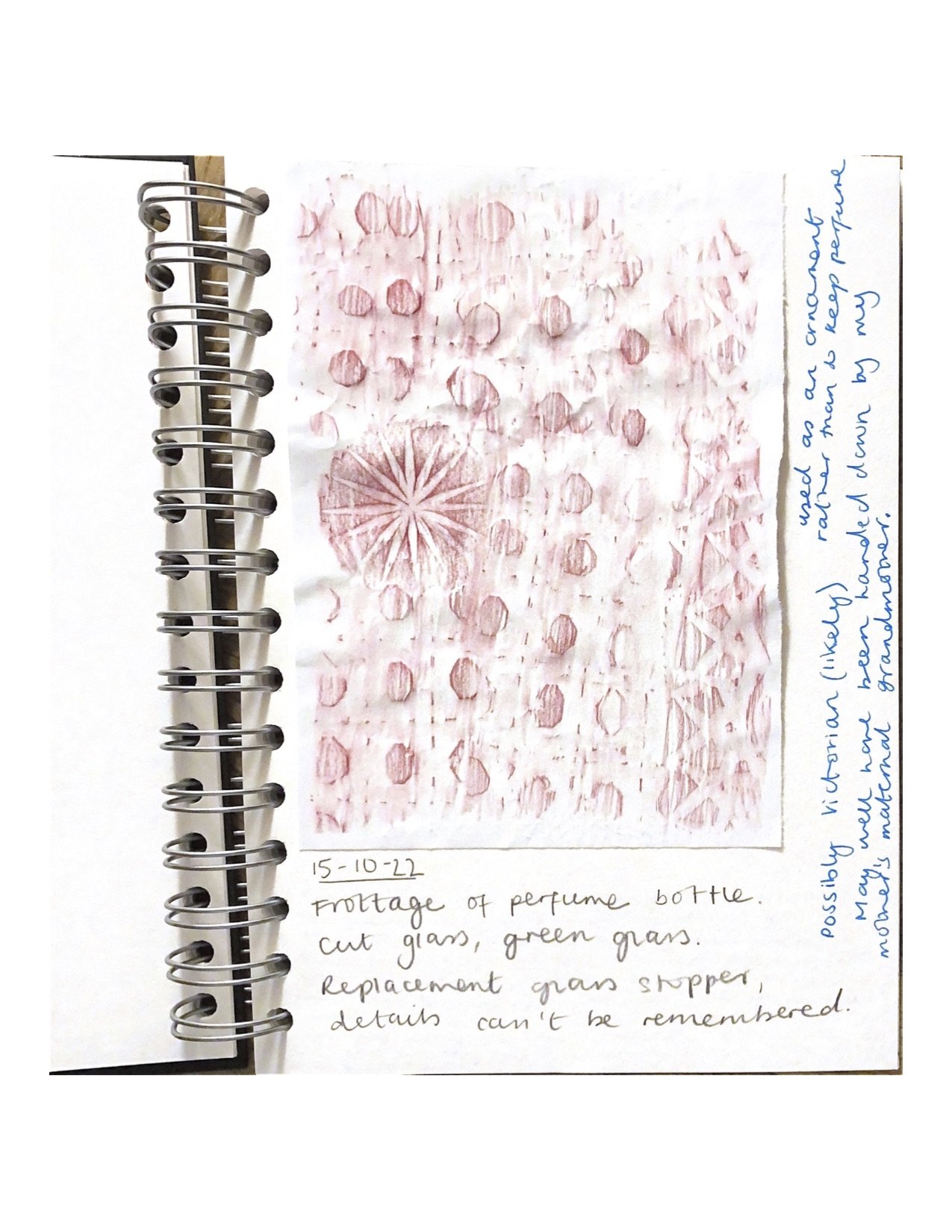
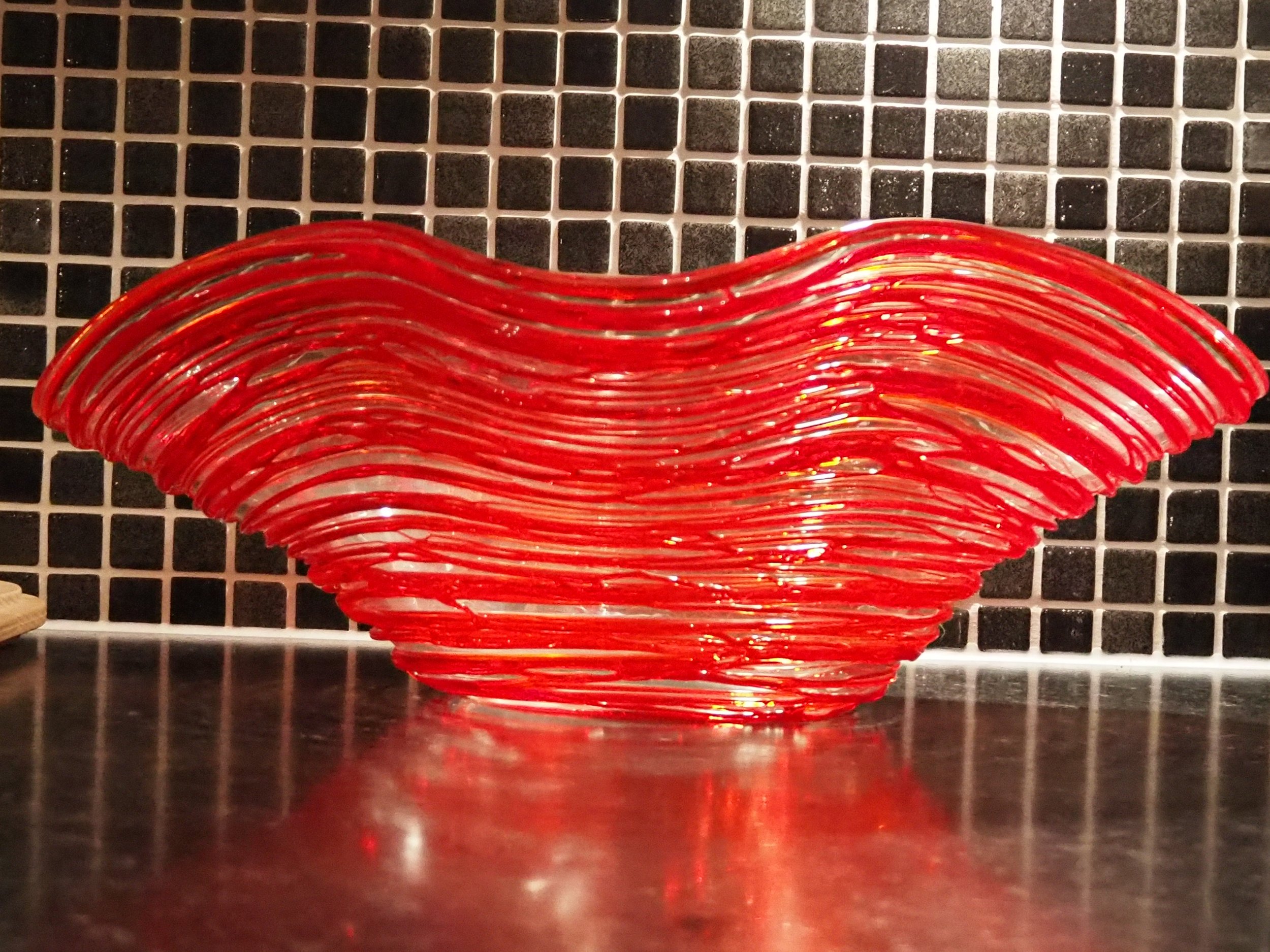

1. The Entire City, Max Ernst, 1934
2. Ornamental coffee pot, Egypt, circa 1980
3. Frottage and documentation of ornamental coffee pot
4. Perfume bottle, country of origin unknown, most likely Victorian
5. Frottage and documentation of perfume bottle
6. Bowl/vase, Venice, 2007
7. Frottage and documentation of Venetian glass bowl/vase